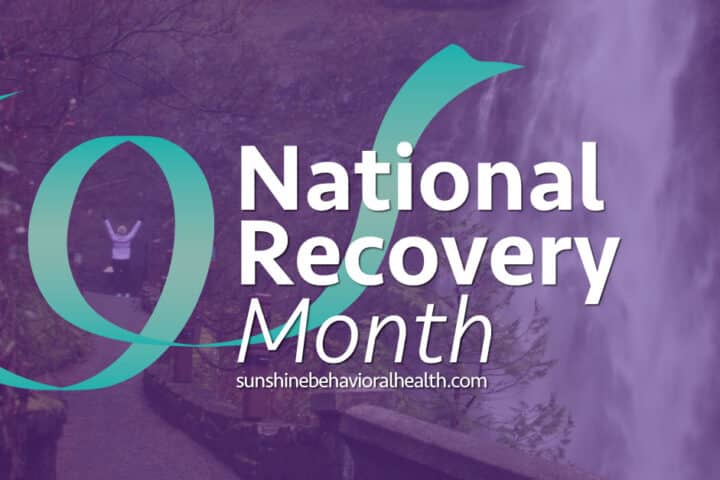
National Recovery Month: Relapses Can Be Part of Recovery
Like many worthwhile things in life, recovery from drug or alcohol addiction can be difficult. It’s no wonder that up to 60% of people relapse within a year of treatment.
After the hard work of treating an addiction, relapses can be disheartening.
It can take considerable time, energy, and money to become sober. People may be working on ways to deal with addiction-related psychological problems and rebuild their relationships and careers.
When they relapse, some people think they’ve squandered all their work. They might feel so disheartened that they figure that they’ve failed. They might think they should keep abusing drugs and alcohol because they’ve lost their opportunity to become sober.
In short, they’ve lost hope.
That’s why ongoing aftercare is such an important part of addiction treatment. It often includes individual or group therapy that addresses what people are feeling to try to create more positive thoughts and feelings.
Therapists can help people see that their thoughts are just thoughts. They’re personal perspectives and might not represent the reality of situation.
Effective therapists can help their clients realize that their relapses may have been setbacks, but that corrective work can make these setbacks a temporary pause. They don’t mean that their addictions are permanent.
Assistance can teach clients that while they may not be able to avoid triggers, they can develop tools for dealing with them, such as meditation.
Meditation requires people to focus on the present instead of the past or the future. It can help someone deflect their thoughts and help them reduce depression, anxiety, and stress.
Visiting with therapists can be therapeutic. Clients know that they’re actively doing something to help their mental health, treat their addictions, and prevent relapses.
Their actions could boost clients’ self-esteem, which could make them even less likely to begin using drugs or alcohol again.
When handled correctly, relapses are temporary. They can even be learning experiences.
Relapses don’t mean recovery has ended. Instead, they can ultimately produce a positive new start.
Sources
sunshinebehavioralhealth.com – Our Mission & Core Values
ncbi.nlm.nih.gov – Mindfulness Meditation for Alcohol Relapse Prevention: A Feasibility Pilot Study
A Message From Our CEO
Medical disclaimer:
Sunshine Behavioral Health strives to help people who are facing substance abuse, addiction, mental health disorders, or a combination of these conditions. It does this by providing compassionate care and evidence-based content that addresses health, treatment, and recovery.
Licensed medical professionals review material we publish on our site. The material is not a substitute for qualified medical diagnoses, treatment, or advice. It should not be used to replace the suggestions of your personal physician or other health care professionals.





